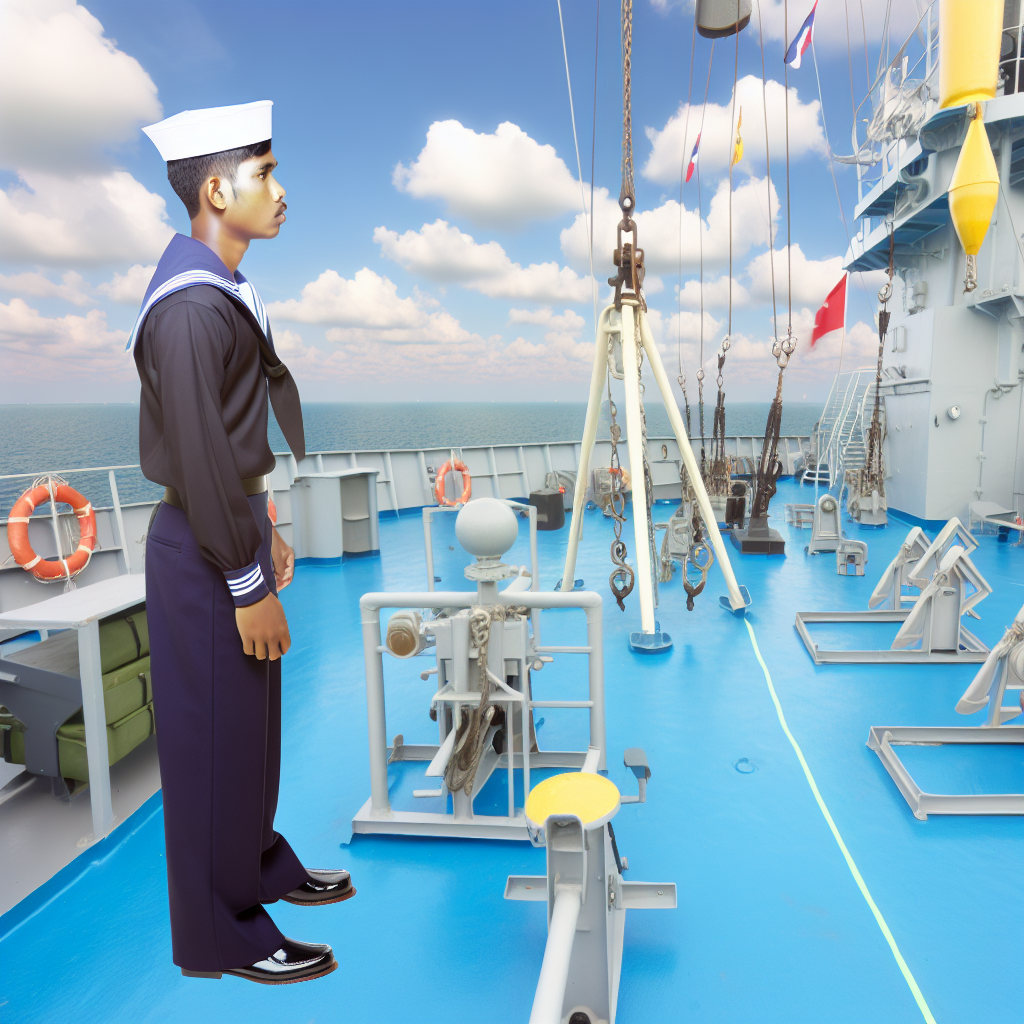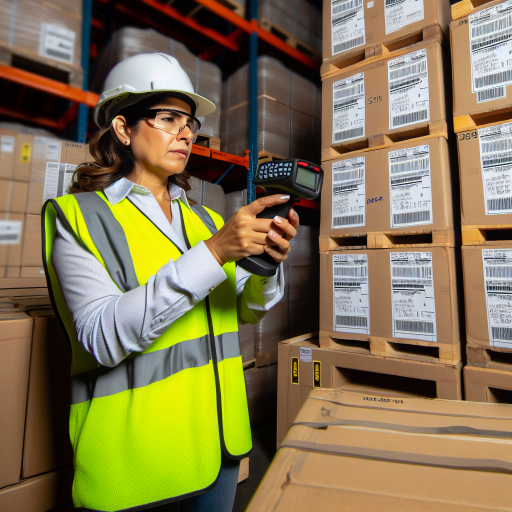Introduction:
Training programs play a crucial role in preparing aspiring seamen for successful careers in the maritime industry.
With the increasing demand for skilled seamen globally, it’s essential for individuals to enroll in reputable training programs to acquire the necessary knowledge and skills.
Types of Training Programs Available:
When it comes to training programs for aspiring seamen, there are several options to choose from.
These programs can be broadly categorized into government-funded programs, private training institutes, and specialized courses.
Government-Funded Programs:
- These programs are often offered by maritime authorities in various countries.
- They are funded by the government to provide quality training to aspiring seamen.
- Government-funded programs are usually more affordable than private options.
- They follow strict regulations and guidelines set by the regulatory bodies.
Private Training Institutes:
- Private training institutes are run by private organizations or companies.
- They offer a wide range of programs tailored to meet industry requirements.
- These programs may be more expensive than government-funded alternatives.
- Private training institutes often have state-of-the-art facilities and equipment.
Specialized Courses:
- Specialized courses are designed to focus on specific areas of maritime training.
- These courses are ideal for individuals looking to specialize in a particular field.
- They may include courses in navigation, engineering, or maritime security.
- Specialized courses are often shorter in duration but more intensive.
Each type of training program has its own advantages and disadvantages.
Government-funded programs are cost-effective but may have limited seats available.
Private training institutes offer flexibility and modern facilities but come at a higher cost.
Specialized courses provide in-depth knowledge in a specific area but may not cover all aspects of seafaring.
Aspiring seamen should carefully consider their goals and budget before choosing a training program.
Accreditation and Certification
When aspiring seamen are considering training programs, it is crucial to choose one that is accredited and recognized by maritime authorities.
Accreditation ensures that the program meets certain standards and provides quality education.
Obtaining certifications through training programs is essential for advancing in the maritime industry.
These certifications demonstrate competence and expertise in specific areas, making seamen more marketable and qualified for higher-ranking positions.
Importance of Choosing Accredited Programs
- Accreditation ensures that the training program meets industry standards and regulations.
- Employers prefer candidates who have completed accredited programs.
- Accreditation provides assurance of quality education and training.
- It increases the credibility and recognition of the seamen in the industry.
Various Certifications for Aspiring Seamen
- STCW Certification: This certification is mandatory for all seafarers and includes basic safety training, firefighting, and survival at sea.
- Crowd Management Certification: Required for seamen who are responsible for passenger safety on ships.
- Medical First Aid Certification: Seamen need this certification to provide medical assistance onboard ships.
- Security Awareness Certification: Essential for seamen to deal with security threats and emergencies at sea.
Examples of Reputable Accreditation Bodies
- Maritime and Coastguard Agency (MCA): Based in the UK, the MCA is responsible for setting standards for seafarers’ training and certification.
- United States Coast Guard (USCG): The USCG establishes regulations and standards for training programs in the United States.
- International Maritime Organization (IMO): A specialized agency of the United Nations, the IMO sets global standards for maritime safety and security.
Choosing accredited training programs and obtaining relevant certifications are crucial steps for aspiring seamen to establish their careers and succeed in the maritime industry.
By selecting reputable programs and certifications, seamen can enhance their skills, knowledge, and job prospects in this competitive field.
Explore Further: Warehouse Supervisor: Managing Seasonal Workloads
Curriculum and Course Structure:
Training programs for aspiring seamen typically consist of a comprehensive curriculum that covers both theoretical knowledge and practical training.
Below is a detailed overview of the typical curriculum and course structure of training programs for seamen:
Subjects Covered:
- The curriculum includes subjects such as navigation, ship handling, maritime law, marine engineering, meteorology, and seamanship.
- Students also learn about cargo handling, safety procedures, firefighting, first aid, and communication skills.
- The theoretical subjects are complemented by practical training sessions to provide hands-on experience.
Practical Training Components:
- Practical training components of the program may include on-board training on ships, simulators to practice navigation and ship handling skills.
- Students are required to complete a certain number of sea days to gain practical experience and apply their theoretical knowledge in real-world scenarios.
- Practical training sessions focus on developing skills related to ship operation, maintenance, safety protocols, and emergency response procedures.
Duration of the Programs:
- The duration of training programs for seamen can vary depending on the specific course and certification level.
- Entry-level programs such as the Deck Cadet training program may last anywhere from 6 months to 1 year.
- Advanced courses for officer ranks may have a longer duration, ranging from 1-2 years or more.
Specialized Courses and Additional Certifications:
- Some training programs may offer specialized courses in areas such as maritime security, container handling, offshore operations, or dynamic positioning.
- Additional certifications such as Advanced Firefighting, Medical First Aid, GMDSS (Global Maritime Distress and Safety System), or ARPA (Automatic Radar Plotting Aids) may be available.
- These specialized courses and certifications provide seamen with the opportunity to enhance their skills and qualifications for specific roles within the maritime industry.
Gain More Insights: Skills Required for a Packaging Engineer Role
Training Facilities and Resources
Aspiring seamen can expect to utilize top-notch training facilities and resources to enhance their skills and knowledge during their training.
Transform Your Career Today
Unlock a personalized career strategy that drives real results. Get tailored advice and a roadmap designed just for you.
Start NowPractical training in a real-world setting is crucial for aspiring seamen to develop the necessary skills and confidence to navigate the challenges of life at sea.
By utilizing simulators, ship models, and other hands-on resources, students can gain valuable experience and practical knowledge that will prepare them for a successful career in the maritime industry.
Investing in state-of-the-art training facilities and resources ensures that aspiring seamen receive a comprehensive education that meets the demands of modern shipping practices and regulations.
- Simulators: These high-tech devices simulate real-life scenarios at sea, allowing students to practice navigation, handling emergencies, and various other tasks in a controlled environment.
- Ship Models: These scaled-down replicas of actual ships provide hands-on experience in understanding the layout and operation of different types of vessels.
- Other Equipment: Students can expect to have access to a wide range of equipment such as radar systems, communication devices, and safety gear to familiarize themselves with industry-standard tools.
Find Out More: Freight Agent Job Requirements and Qualifications

Industry Partnerships and Job Placement:
Training programs with partnerships with maritime companies offer practical experience.
These partnerships provide access to internships and job opportunities.
Students benefit from networking with industry professionals during their training.
Partnerships can lead to direct job placement post-graduation.
Companies often recruit directly from these training programs for their vacancies.
Significance of Training Programs with Industry Partnerships:
Students gain real-world insight through partnerships with leading maritime companies.
Industry partnerships enhance the credibility and quality of the training programs.
Access to industry professionals allows students to learn from experienced seamen.
Partnerships create a bridge between academic learning and practical application at sea.
Opportunities for Job Placement and Career Advancement:
Completing a training program with industry partnerships increases job placement prospects.
Graduates have higher chances of securing employment in reputable maritime companies.
Training programs help students build a strong foundation for their maritime careers.
Job placement services offered by training programs assist graduates in finding suitable roles.
Examples of Successful Graduates:
Michael Thompson completed a training program with an industry partnership and secured a deckhand position.
Laura Martinez found employment as an engine cadet in a leading maritime company after training.
David Johnson advanced his career from a trainee to a second mate role through a training program partnership.
Transform Your Career Today
Unlock a personalized career strategy that drives real results. Get tailored advice and a roadmap designed just for you.
Start NowGrace Lee landed a job as a navigation officer after completing a training program with job placement support.
You Might Also Like: Warehouse Supervisor: Balancing Efficiency and Safety
Financial Aid and Scholarship Opportunities:
Availability of Financial Aid and Scholarships
Financial aid is available for aspiring seamen to help cover the costs of training programs.
Government grants, student loans, and other forms of financial assistance can be utilized.
Government Grants and Student Loans
Many governments offer grants specifically for individuals pursuing careers in the maritime industry.
Student loans are an option to finance your training, with flexible repayment terms.
Specific Scholarships for Maritime Industry
There are specific scholarships available for students interested in a career in the maritime industry.
These scholarships can cover tuition fees, living expenses, and other costs related to training.
By taking advantage of these financial aid options and scholarships, aspiring seamen can alleviate the financial burden of training programs and focus on their career goals.
Selecting the Best Maritime Training Program
It is critical for aspiring seamen to choose the best training programs available.
By selecting the right program, individuals can acquire the necessary skills and knowledge to excel in their maritime careers.
Research and compare different training programs to find the most suitable option.
Factors such as accreditation, curriculum, facilities, and job placement opportunities should be carefully considered before making a decision.
Choosing a reputable training program can greatly impact an individual’s future success in the maritime industry.
The quality of education and training received during these programs can make a significant difference in the long run.
Aspiring seamen should take the time to evaluate the various training programs available to them.
By doing so, they can ensure that they are receiving the best possible education and preparing themselves for a successful and fulfilling career at sea.
Additional Resources
How to Join the Merchant Marine – Maritime Institute of Technology …
If I want to become a merchant mariner, can I join a company that is …




